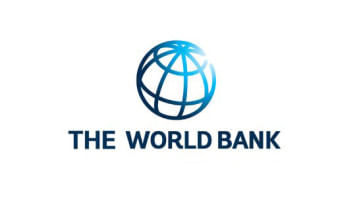Accord to stay on for 6 more months
The Accord, the EU-based factory inspection and remediation agency, got the extension to stay on in Bangladesh for six more months after its original five-year tenure ends on May 31.
Initially, the platform of 220 European retailers sought an extension for three years mainly to monitor the trade union activities of garment workers -- a prospect that was met with much animosity by the government and factory owners.
Furthermore, the High Court last month had restrained the government from extending the inspection agency's tenure following a writ petition filed by Smart Jeans, which felt wronged by the platform.
The decision of the extension was formally announced yesterday at a joint press conference at the office of the Bangladesh Garment Manufacturers and Exporters Association in Dhaka.
Quizzed about the High Court decision at the press conference, Edward David Southall, a member of the Accord steering committee, declined to answer the question.
The Accord will now work with the Transition Monitoring Committee, which is comprised of Accord brands, global trade unions, the BGMEA, the International Labour Organization and the Bangladesh government.
The TMC will review after six months whether the Remediation Coordination Cell -- an organisation formed with representation from the ILO, the BGMEA and the government to monitor building safety – is ready to take over from the Accord.
“If these criteria are not met, the Accord will continue,” said Joris Oldenziel, deputy director for implementation of the Accord.
The Accord will leave the country after six months if it sees that the RCC is capable of running the inspection and remediation of factory buildings meeting global standards, the Accord officials said at the press conference.
The government has established the TMC for the purpose of determining when the agreed conditions for a handover of the Accord's work to a fully-functional and competent national regulatory body are met.
The criteria include: demonstrated proficiency in inspection capacity; remediation of hazards; enforcement of the law against non-compliant factories; full transparency of governance and remediation progress; and investigation and fair resolution of workers' safety complaints.
The overall progress rate of remediation at the 1,620 Accord-covered factories is 85 percent, said a statement from the agency, which was formed after the Rana Plaza collapse.
As a result of the efforts, millions of workers now work in safer factories.
Bangladesh's garment factories also benefit materially, because buyers recognise that a factory that has completed its safety work presents far fewer risks for them, the statement added.
The Accord continues to be a unique opportunity for factory management, workers and their trade unions, global brands and global unions to combine their forces and thus remedy the systemic problem of building and fire safety deficits that has plagued the Bangladeshi garment industry, said Jenny Holdcroft, assistant general secretary to the IndustriALL Global Union.
“At the same time, we recognise that the remediation work has not been completed.”
Life-threatening safety hazards such as inadequate fire exits, fire alarms and fire protection systems are still present in hundreds of factories, she said.
“Fire and building safety involves not just the renovations to make factories safe, but also ongoing vigilance to keep them safe.”
As of today, there is not yet a fully resourced national regulatory body in place to take over this work, she added.
Siddiqur Rahman, president of the BGMEA, acknowledged the vital role the Accord had played in improving the sector's workplace safety.
“Now we can say proudly that Bangladesh's garment factories are safer than any other country. We gained a lot of experience from the inspection and remediation works,” he added.

 For all latest news, follow The Daily Star's Google News channel.
For all latest news, follow The Daily Star's Google News channel. 



Comments